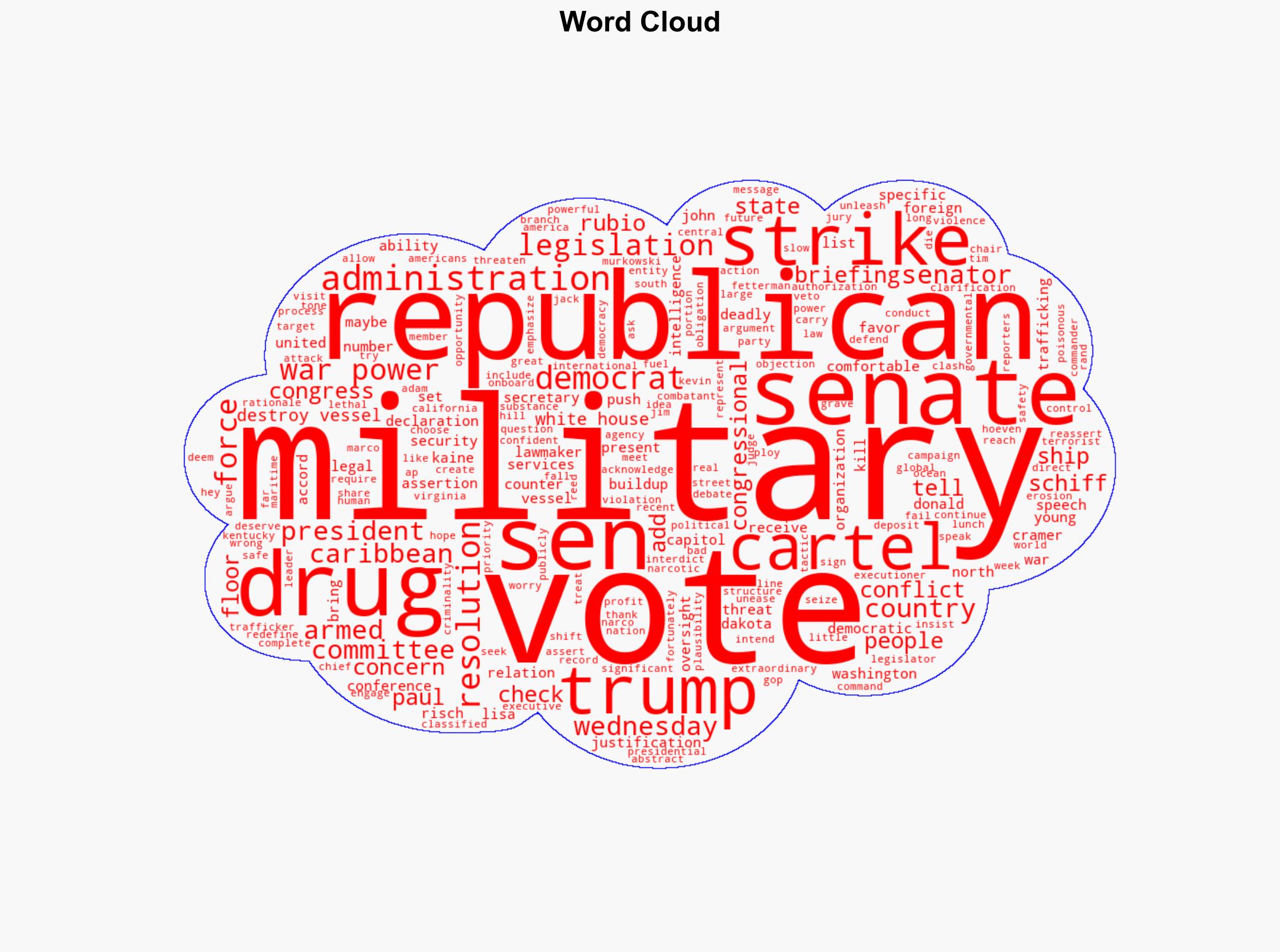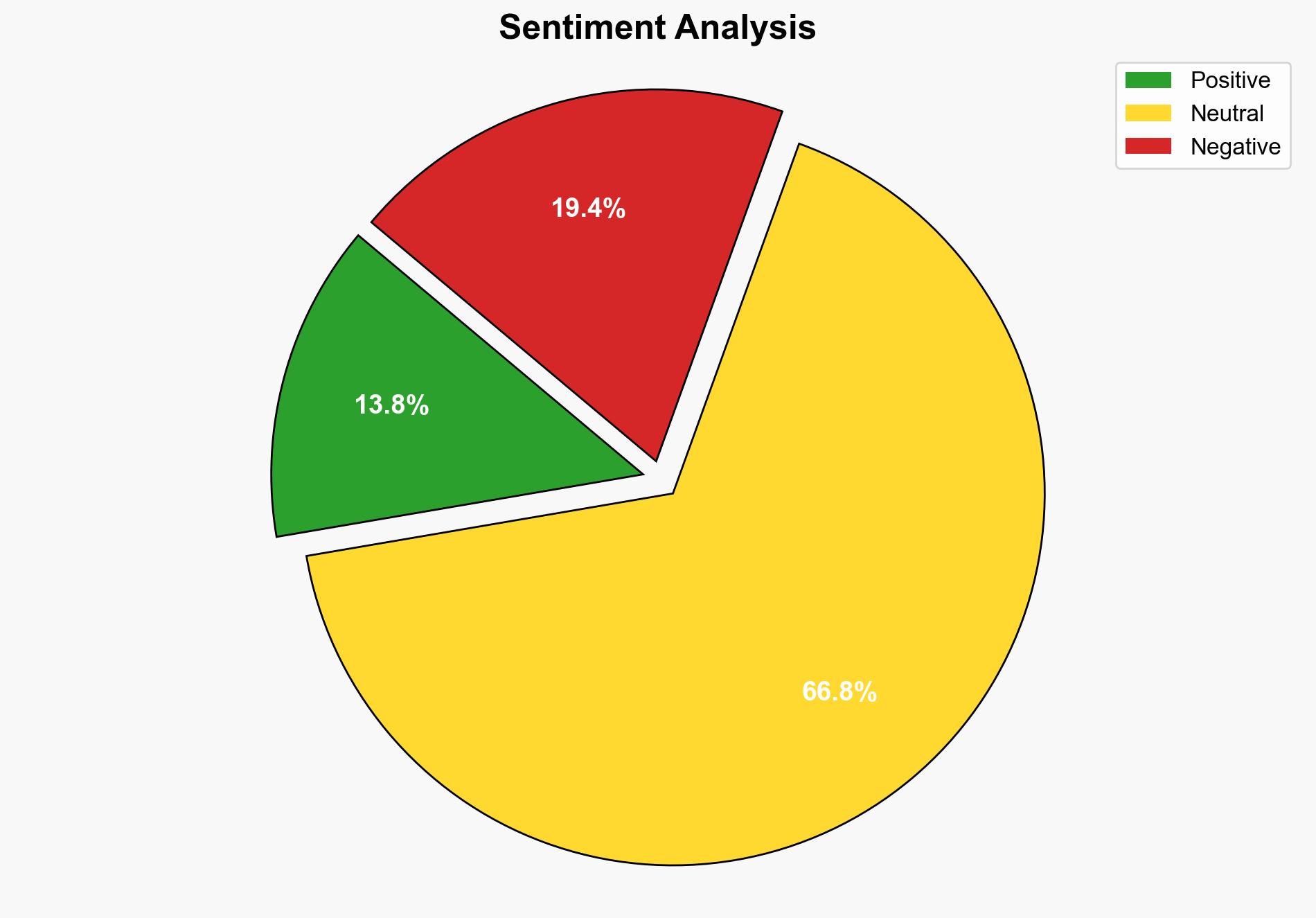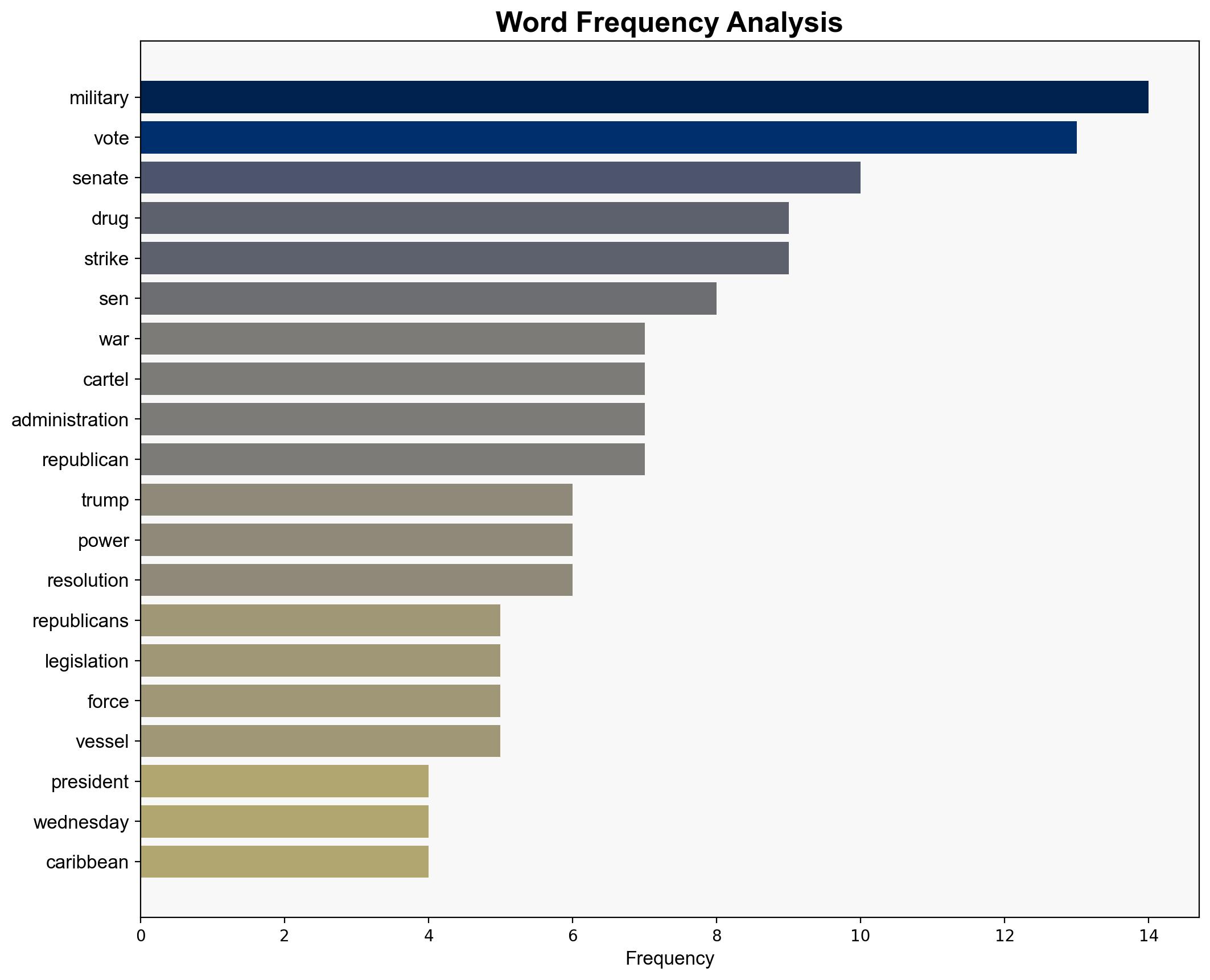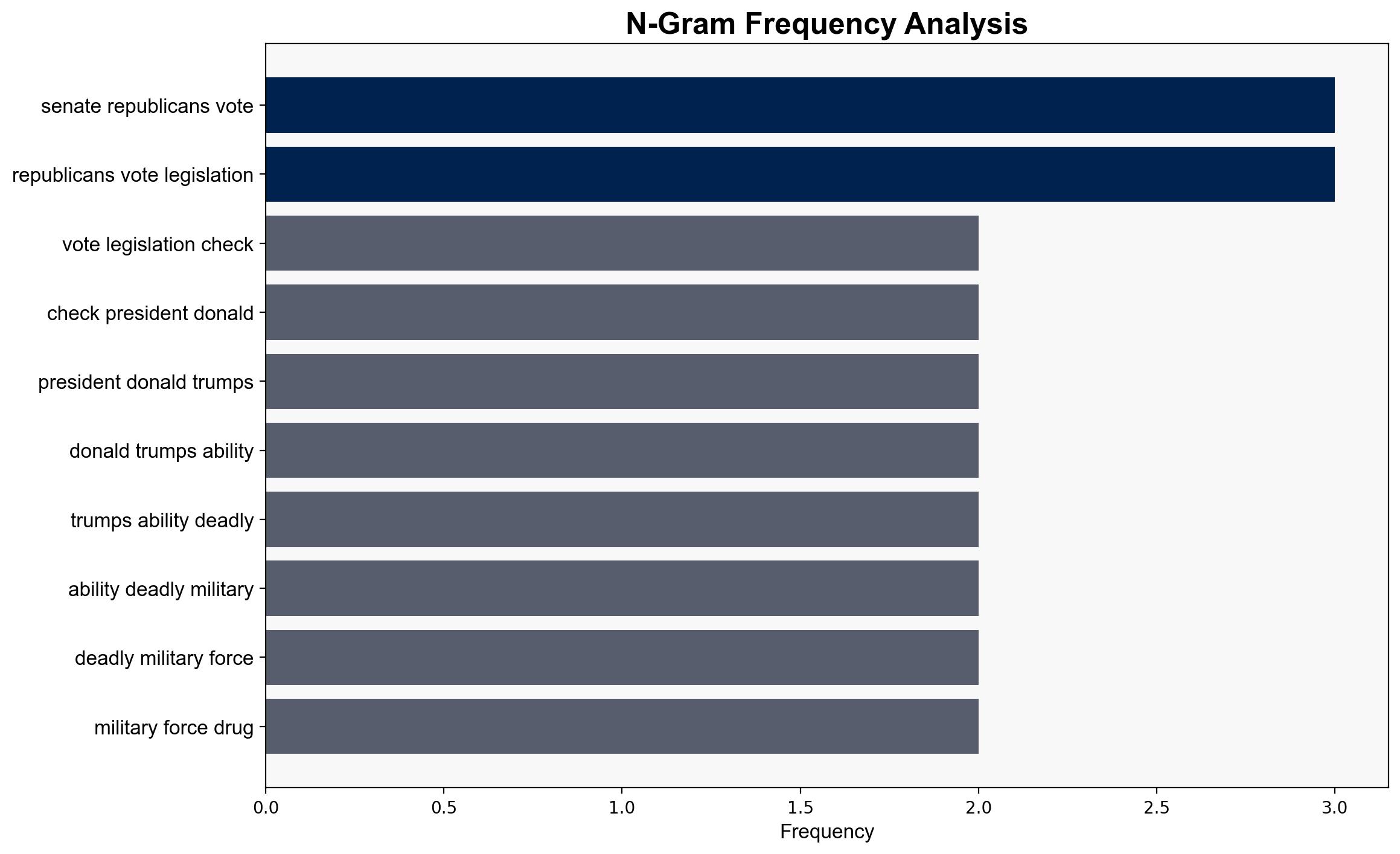Senate Republicans vote down legislation to check Trump’s use of war powers against cartels – ABC News
Published on: 2025-10-09
Intelligence Report: Senate Republicans vote down legislation to check Trump’s use of war powers against cartels – ABC News
1. BLUF (Bottom Line Up Front)
The most supported hypothesis is that the Senate Republicans’ decision to vote down the legislation reflects a strategic alignment with the Trump administration’s broader national security policy, prioritizing executive flexibility in military operations against perceived threats. Confidence in this hypothesis is moderate due to the complexity of political motivations and the lack of transparency in the administration’s legal rationale. Recommended action includes increased oversight mechanisms and diplomatic engagement to address international law concerns.
2. Competing Hypotheses
1. **Hypothesis A**: Senate Republicans voted down the legislation to maintain executive flexibility in military operations, aligning with the Trump administration’s national security priorities.
2. **Hypothesis B**: The vote reflects partisan politics, with Republicans opposing the legislation primarily to counter Democratic initiatives, regardless of the underlying security implications.
Using the Analysis of Competing Hypotheses (ACH) 2.0, Hypothesis A is better supported by the alignment of Republican senators with the administration’s narrative of drug cartels as armed combatants. Hypothesis B is less supported due to the presence of bipartisan concerns about the legal justification for military actions.
3. Key Assumptions and Red Flags
– **Assumptions**:
– Hypothesis A assumes that the administration’s narrative is credible and that military flexibility is a priority.
– Hypothesis B assumes that partisan politics are the primary driver of legislative decisions.
– **Red Flags**:
– Lack of detailed legal justification for military actions against drug cartels.
– Potential cognitive bias in interpreting the administration’s intentions.
– Inconsistent data regarding the actual threat level posed by the cartels.
4. Implications and Strategic Risks
– **Patterns**: The vote may set a precedent for future executive actions without congressional oversight, potentially eroding legislative checks on military power.
– **Cascading Threats**: Unchecked military actions could escalate tensions with countries in Central and South America, leading to diplomatic fallout.
– **Geopolitical Risks**: Redefining drug cartels as armed combatants could strain international relations and complicate global counter-terrorism efforts.
5. Recommendations and Outlook
- Enhance congressional oversight through bipartisan committees to ensure transparency in military operations.
- Engage in diplomatic dialogue with affected nations to mitigate international law concerns.
- Scenario Projections:
- Best Case: Increased oversight leads to balanced executive-legislative power dynamics.
- Worst Case: Escalation of military actions without oversight leads to international conflict.
- Most Likely: Continued partisan conflict with incremental oversight improvements.
6. Key Individuals and Entities
– Donald Trump
– Rand Paul
– Lisa Murkowski
– John Fetterman
– Tim Kaine
– Adam Schiff
– Kevin Cramer
– Jim Risch
– Jack Reed
7. Thematic Tags
national security threats, counter-terrorism, legislative oversight, international law




